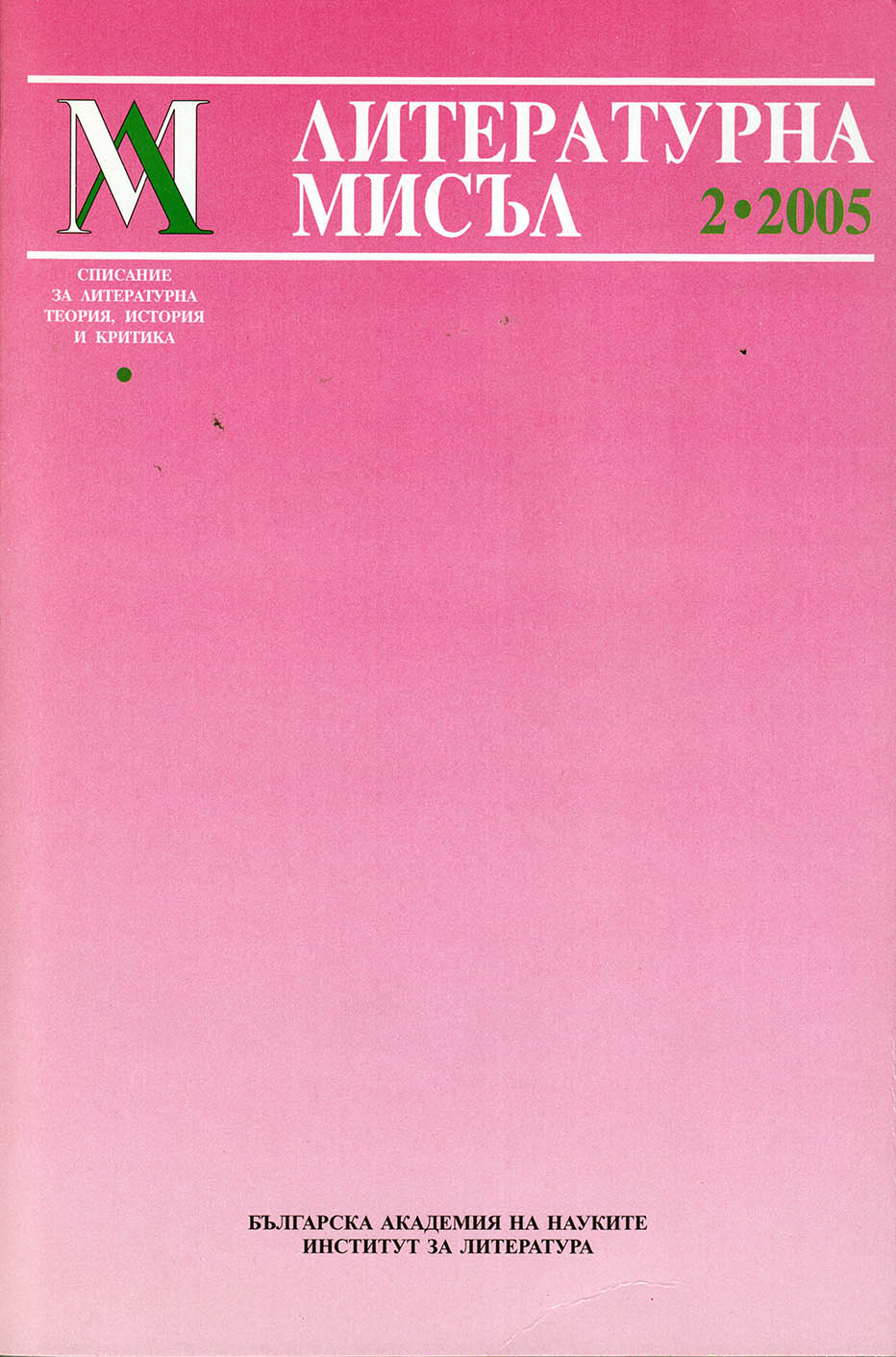Уседналата долница на Европа:Регионалната междуположеност на Балканите като по(л)родена
The Settled Down Lowness of Europe: The Regional Inbetweenness of the Balkans as Engendered
Author(s): Dimitar KamburovSubject(s): Literary Texts
Published by: Институт за литература - БАН
Summary/Abstract: Among the traditional definitions of backwardness and indiscernible inbetweenness the Balkans have been traditionally perceived, both from within and without, as a masculine space, i.e. as a place of non-modernized patriarchal domination. In effect a compound image of the Balkans as an unreasonable, underdeveloped, inconspicuous, brutish, swarthy macho has been constructed. Since measures are due, both modernisation and affiliation to the West are put at work. Yet the masculine image of the region is not yet challenged, neither outside nor inside. Modern gender imagology allows man to be weak yet not irrational; deprived of rationality man is but insane. The insanity of the masculine Balkans is promoted as hampering both modernisation and integration of the region. So do suggest the local and foreign media, former and contemporary travel writings, also the regional mass culture and popular art (yet the latter being less unequivocally negative). Such is the message shared by the regional cinematography bum from Kusturica to Tanovic: heroic masculinity of honour, revenge, imaginary rights and claims, of festive suicidality is to be overcome had the Balkans cherished hopes for brighter future. Yet the Balkan literature of today, the postmodern one in particular, shares a different vision. Instead of complying with the feminised modernisation, it assumes that the feminine element of Balkan identity has ever been there, yet the whole gender picture of the regional culture is more complex. It recalls the modern gender rereading of sexes with men weak in their strength or rather fragile in their rigidity, and women sick or rather indisposed with regard to the imposed order. Contrary to Freud’s legacy, postmodern literature displays women as not deranged but rather indisposed: indisposed to possession and thus possessed in their posing disposal. Yet such a gender role distribution is shifted into premodern past and is thus provided with a mythopoetic a-historical endurance; therefore male weakness is promoted as somewhat feminine openness to mystical or rather astonished spirituality, whereas female sickness is sold as a kind of subversive susceptibility of a wise or rather insightful fatalism. What gathers men and women in Balkan postmodern is their vocation or inability to forget, to put aside the memory, to throw away the traces of the past that embrace the ability to think and solve problems. The Balkan postomodern is thus rather premodern in its hyper-textual after-literature of dictionaries, taro cards, crosswords, daily columns, critical reviews, etc., all of them challenging linearity and homogeneity of writing. What are the cultural and political implications of such a literary ideology of Balkan postmodern is to be discussed. As it is well known gender is not only an instrument for change and improvement of women’s position, but also a tool for all-encompassing social and political change. Literature through its Balkan postmodern version is re
Journal: Литературна мисъл
- Issue Year: 2005
- Issue No: 2
- Page Range: 32-50
- Page Count: 19
- Language: Bulgarian
- Content File-PDF

